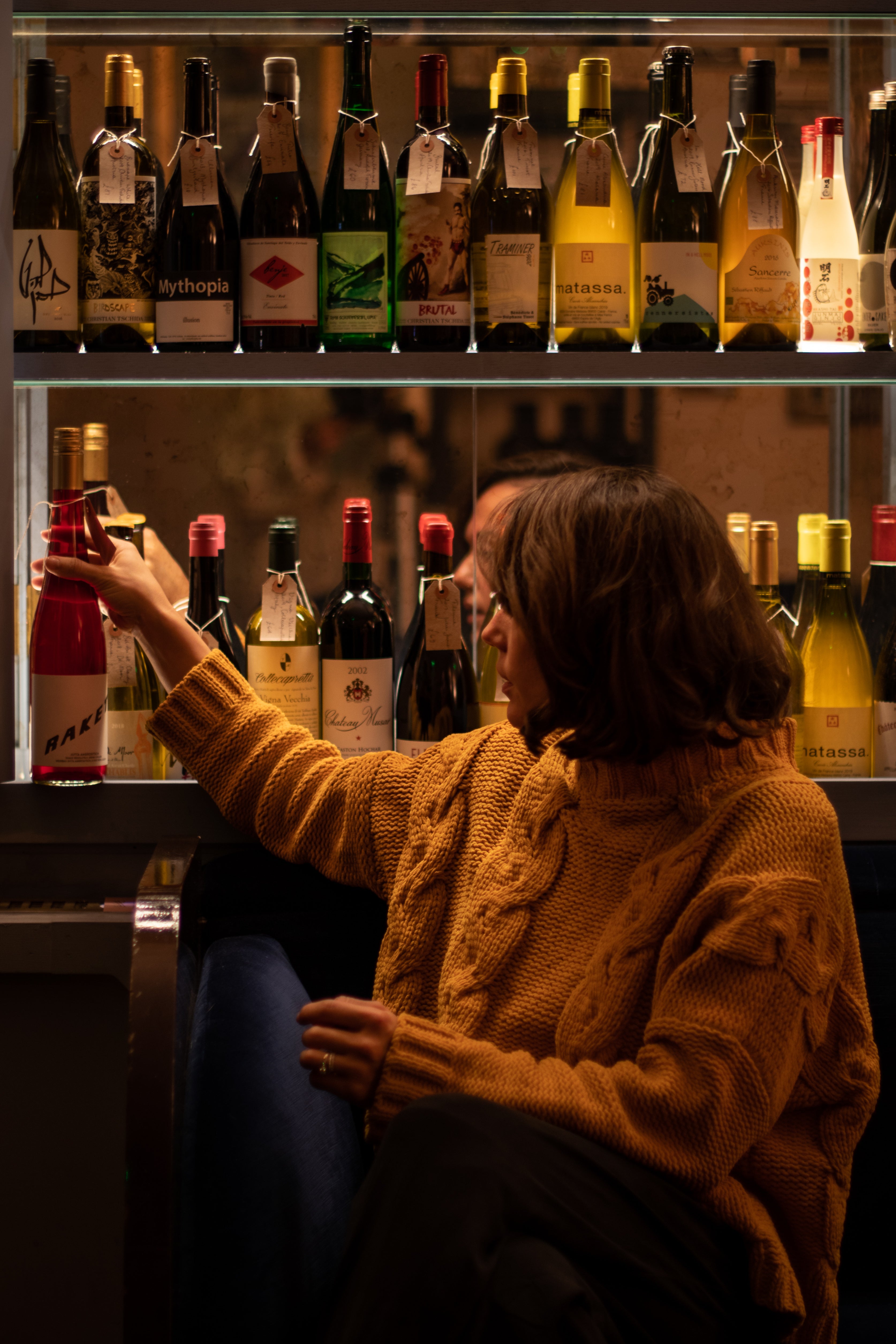Honey Spencer: ‘It’s time to lose the alienating jargon around wine’
Being the wine director for a group of high profile London spots can be a complex experience, but Honey Spencer is on a mission to bring wine-making back to its simpler, more accessible roots, she tells Molly Codyre


Honey Spencer was working in her dream marketing role when she realised that office life wasn’t for her. Describing herself as a true hospitalitarian – thanks in part to her mum who sounds like a wonderful host – Spencer got her first job at the age of 14. “I started working at the local restaurant,” she tells me, “and then I always worked in restaurants to support what I was doing, whether that was studying or working and earning a really crap salary in marketing roles.”
What began as a wallet-padding endeavour found its way under her skin and to the core of Spencer’s identity, quietly developing into a true passion. “I guess the real turning point came for me when I got my dream marketing job that I had been angling at for years, and I realised how much I missed the daily, really diverse interactions that I would have with strangers,” says Spencer. “So I quit my marketing job and went to work for a wine bar that was opening called Sager and Wilde, which was a really important bar at the time. It really transformed how people drank wine in London.”
Fast forward a decade, and that wine bar is now one of London’s most prominent wine destinations, and Spencer is one of the city’s most exciting wine professionals. She is currently the wine director for the Palomar Group, a collection of restaurants in London that includes Evelyn’s Table and Palomar. She took on the role after a short break to have her son, the position allowing her to manage working on the floor while also navigating life with a toddler. I don’t want to discuss this too much as Spencer’s story deserves to be told as more than simply one of a new mother balancing work and her children, however it is undeniable that the requirements of a job in hospitality don’t always correlate with the needs of a toddler and the chaotic timetable that comes with having a child. Her employers have allowed her a schedule that works in harmony with being a mother. If more employers followed their lead, we wouldn’t even need to discuss the issues involved in returning to work after having children.

Spencer entered the wine world at a time that was very exciting for the industry in London. Speaking about her tenure at Sager and Wilde, she says: “This was the first place I had worked in wine where everyone was young and they were using their own more casual vernacular around wine. It wasn’t a load of alienating jargon, which I have always found to be really contrary to the idea of a farmer in a vineyard making wine.” The natural wine scene has since taken off exponentially in London, with even hardy sceptics beginning to understand that just because a wine is cloudy doesn’t mean it’s spitting in the face of everything we thought we knew about the industry. “There has been this kind of rewilding of wine,” says Spencer. “Wine is such a static commercial product. In the beginning, vines grew up trees. It was human beings who decided we’re going to get a field and plant these very organised vineyards. That commercialisation has now gone a bit too far.” She talks about the introduction of fertiliser, the increased use of chemicals and how this ultimately unsustainable process led to many vines simply giving up. It is this which perhaps launched what Spencer calls “a revival of making wine in a more traditional way”.
The wine industry – like much of hospitality – can still be very male dominated. Speaking to Spencer about this was encouraging: she has never experienced any overt obstacles because of her gender. “I think this industry has always really looked after me and nurtured me. I think it may also have a lot to do with the fact that most of my jobs have been in east London, which is a very progressive part of town.” She does touch on the classic everyday sexism – men speaking over her, or schooling her on Bordeaux – but Spencer tends to focus more on her current position and her work to encourage more women to enter the industry. “I am very protective of younger women coming up in the industry as well. We have some young sommeliers here [at the Palomar Group] who have had some negative experiences in the past, and I really try to mentor and protect them.”
I ask if her gender has ever impacted on the jobs she does and does not take, and her response is one of surprise – predominantly at the realisation that perhaps it has. “I’ve generally avoided fine dining, I’ve avoided west London, I’ve avoided working for big wine importers where there might be a kind of alpha-dominated culture,” she tells me. “It’s funny, because I’ve only just realised that when you asked, but I’ve always wanted to be in a place that would help me thrive, and I’ve always gone for the companies where I stand the best chance of being nourished.”
It is evident that her current employers do just that. Throughout our conversation, a sense of admiration for the people she works for shines through – whether it’s the allowance for a four-day working week that helps her juggle family life, or the fact that she gets to manage a number of spaces. I had the pleasure of visiting Evelyn’s Table and meeting Spencer in person just a couple of days after our chat, and seeing her in action provided a whole other layer to her story. This is a woman who truly lives and breathes the wine industry. Her knowledge on each glass and the way it interacts with the dish was unparalleled. Best of all, however, was the ingenuity with which she approached each drink – whether that was serving mead in lieu of a dessert wine, or digging out a skin contact pinot grigio produced in Slovakia.
I see a glimpse of this during our conversation. Her passion is evident when we move onto the topic of Georgian wine – “the earliest record of wine production was in Georgia” – but even more so when I ask what her favourite thing was about working in wine. “Hospitality is anthropology, it’s academic,” says Spencer. “It’s so much more than just serving food. You get to know the world through the lens of hospitality and the lens of wine. You don’t just learn about wine, you learn about geography, you learn about history.”
Out of the Frying Pan aims to navigate what it means to be a woman in the hospitality industry today. Thanks to decades of harmful stereotypes and the rise of macho kitchen culture in the late 1990s and early 2000s, for many women building a career and fighting for change in this space can feel like jumping out of the frying pan and into the fire. After a difficult couple of years, statistics show that there is still a long way to go until we see true equality.
With that in mind, in this series we will speak to the chefs, restaurateurs, brewers, sommeliers, writers and hospitaliarians about life in the industry, what it took to get there and what the future could hold.
Join our commenting forum
Join thought-provoking conversations, follow other Independent readers and see their replies
Comments
Bookmark popover
Removed from bookmarks